
At the risk of being repetitive, we thought you might like another look at the highest form of engine room art, this time FPB 64-6 Grey Wolf. The visual presentation of these engine rooms is better than we have ever seen before, anywhere, from any builder.
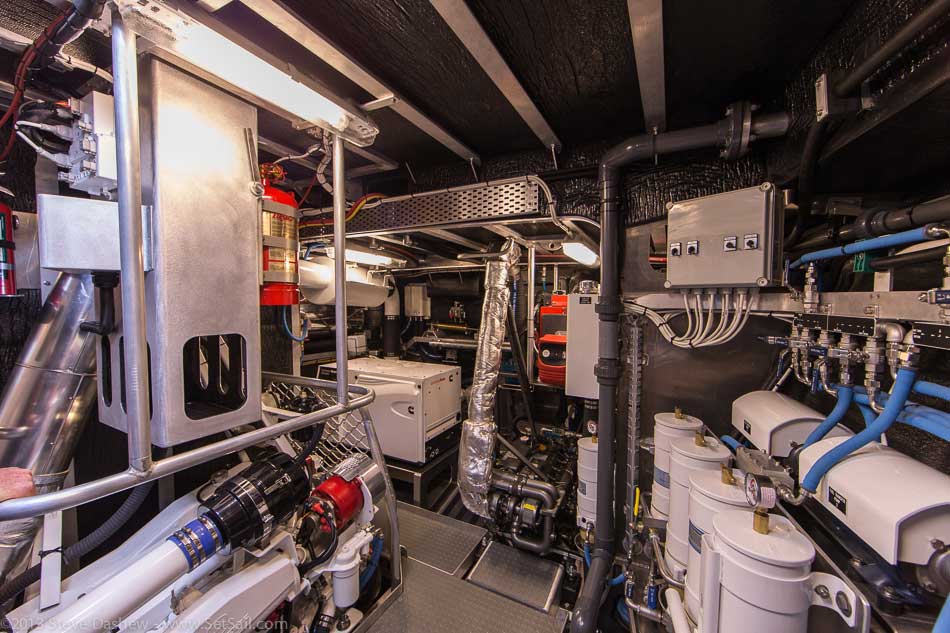
We don’t have time to caption each one, so we’ll let you wander and wonder at your leisure. Enjoy.
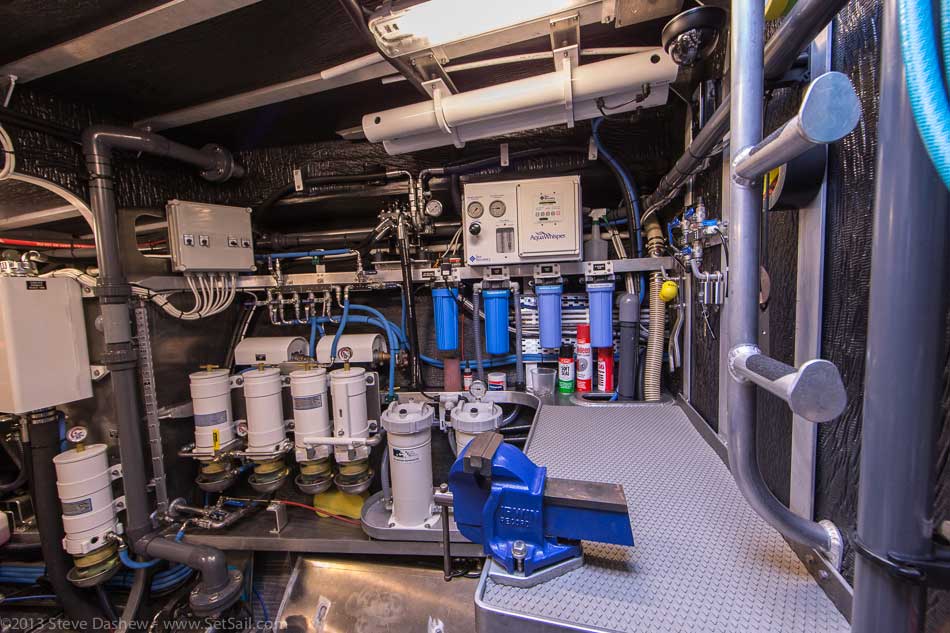
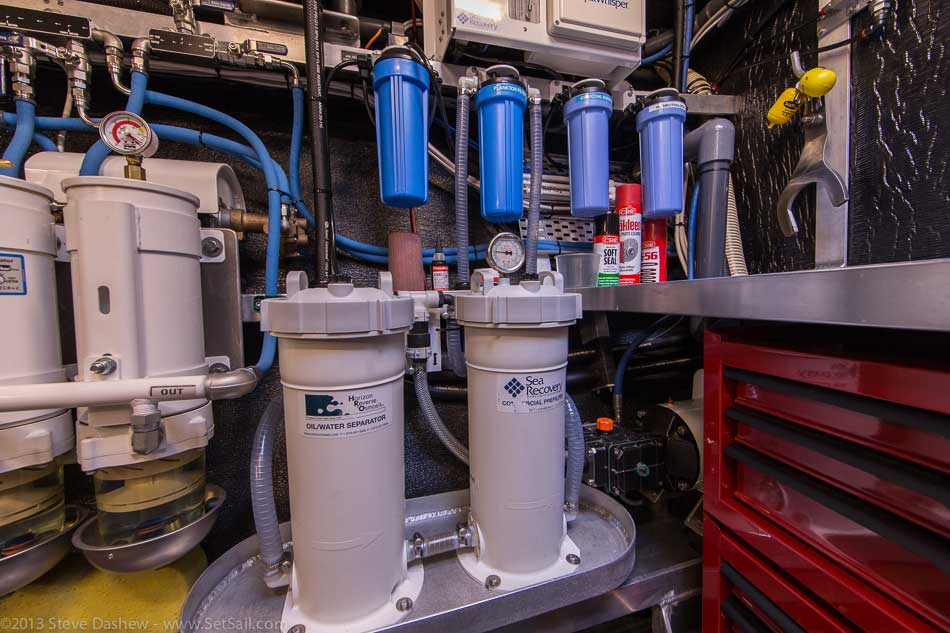
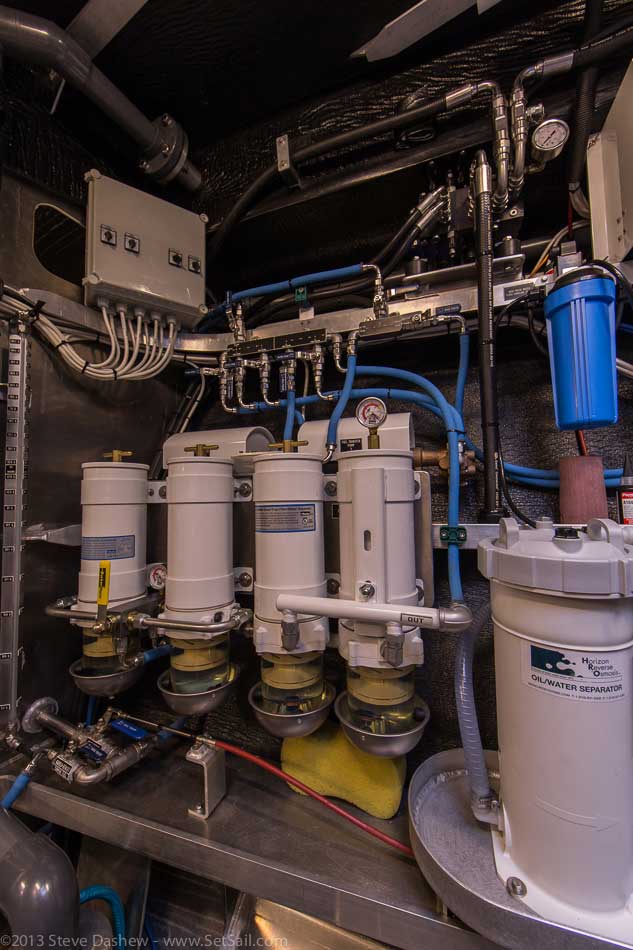
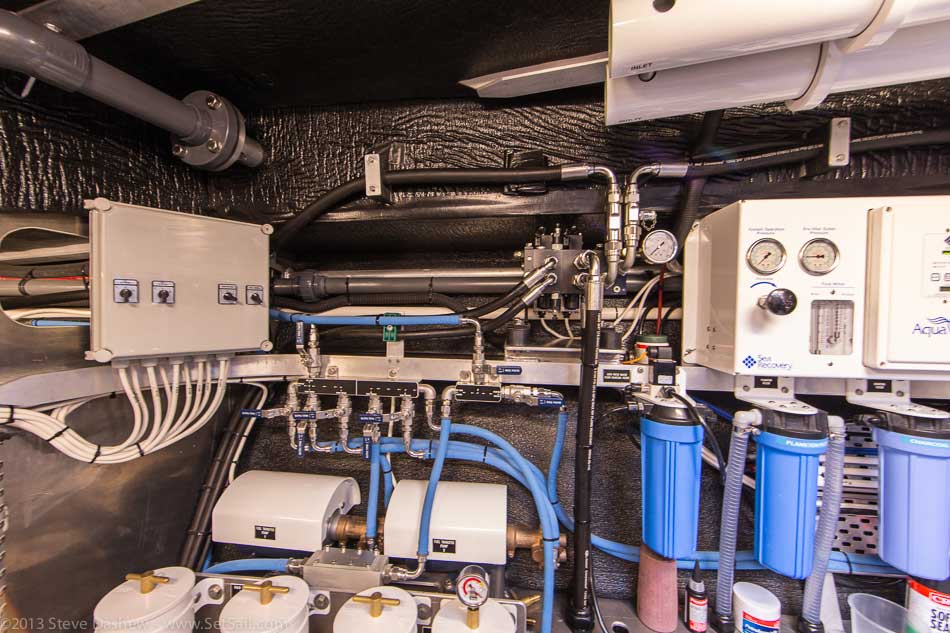
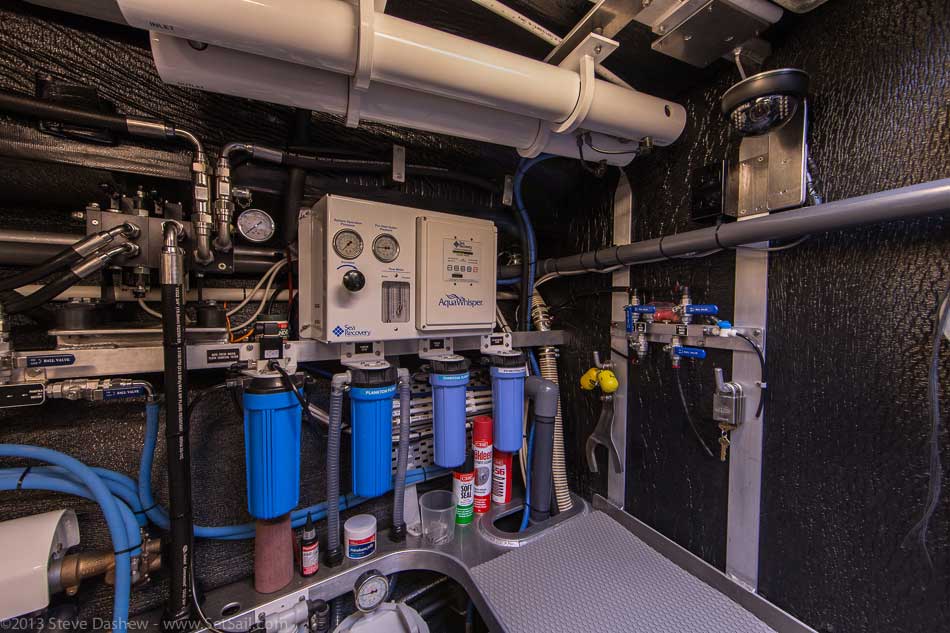
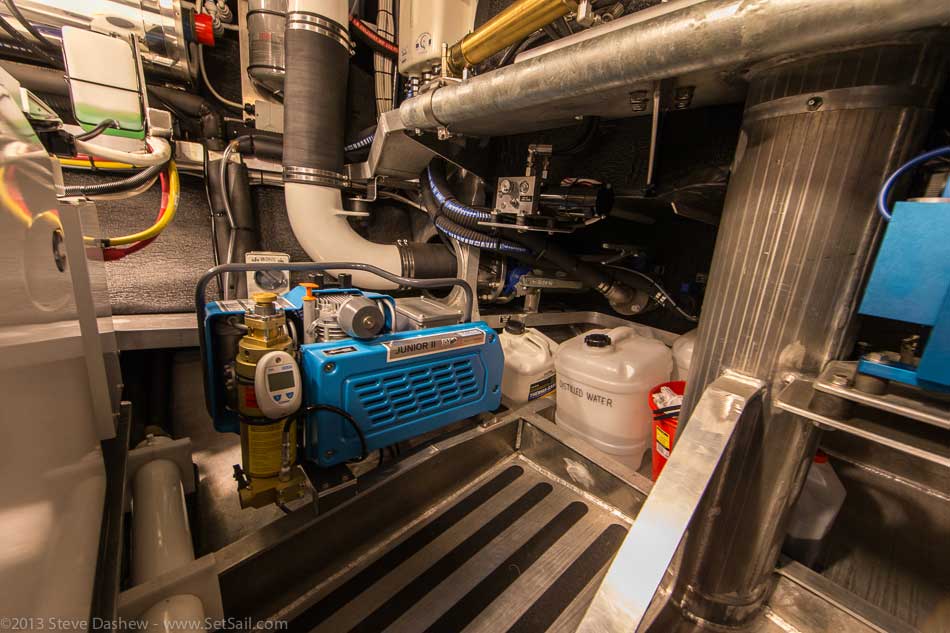
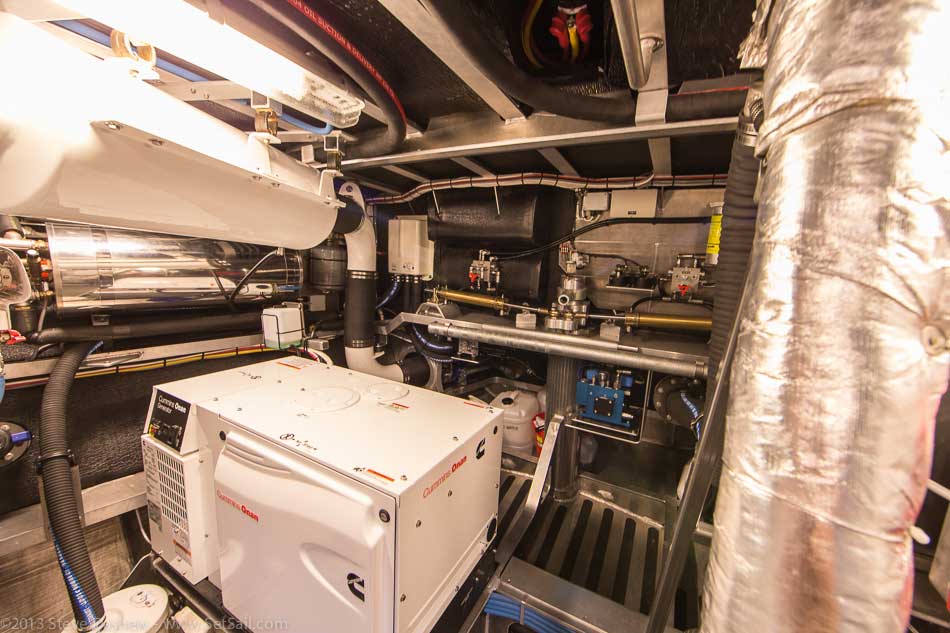
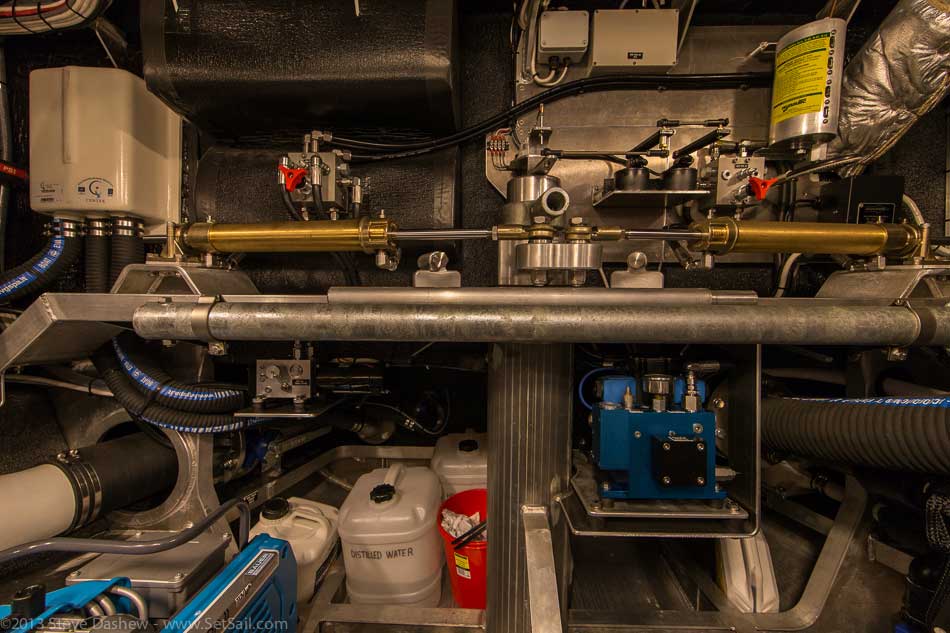
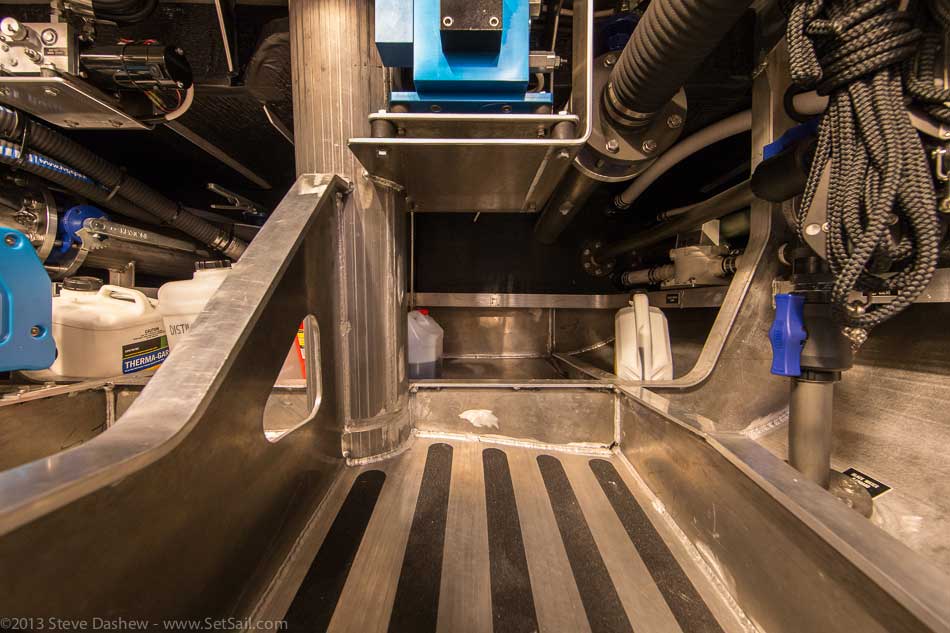
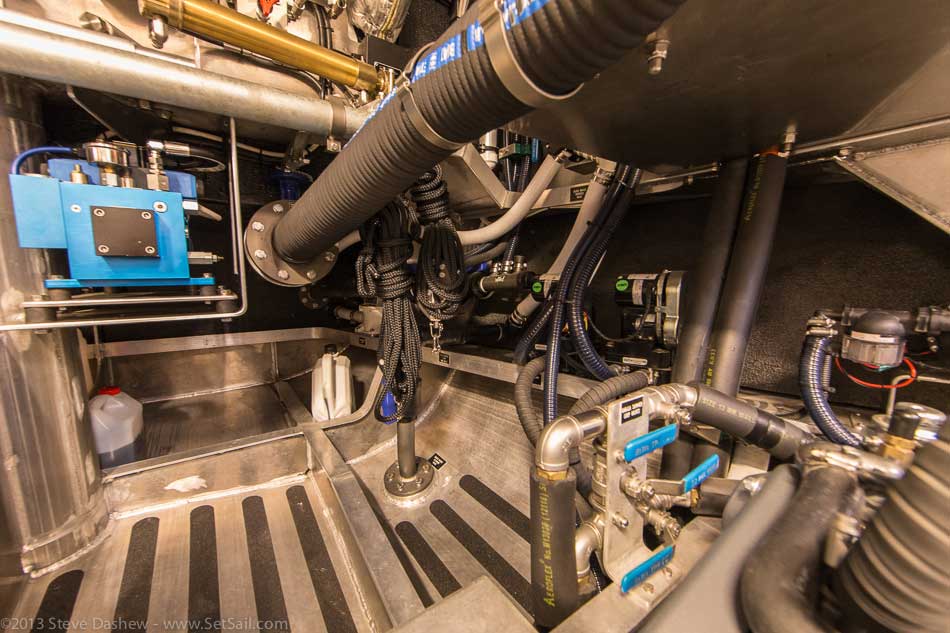
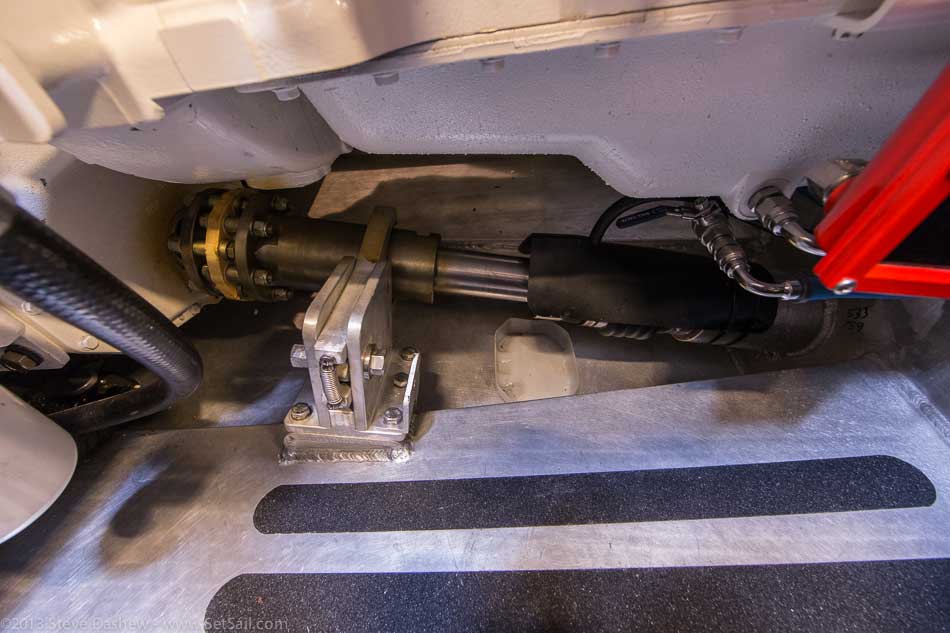
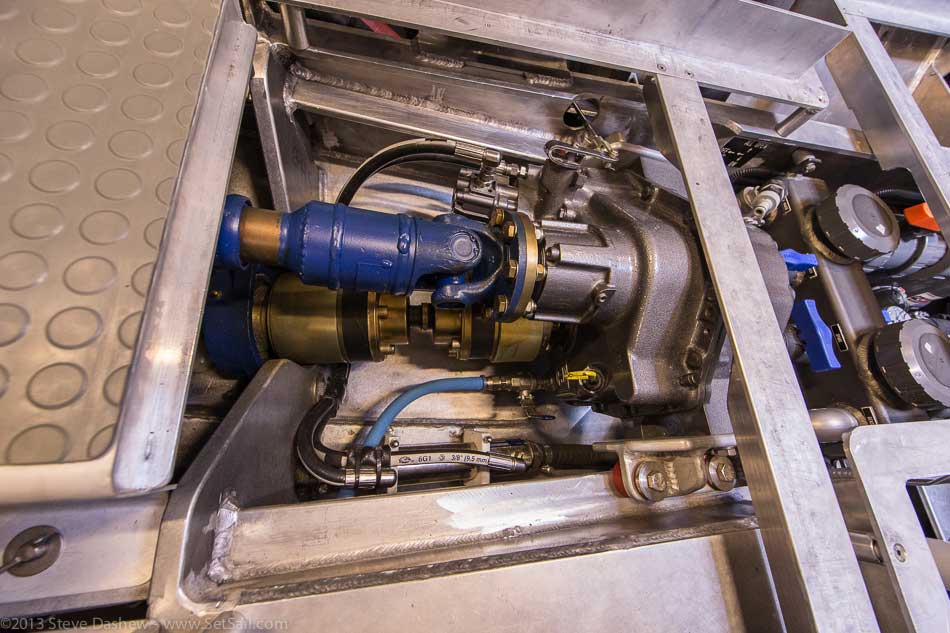
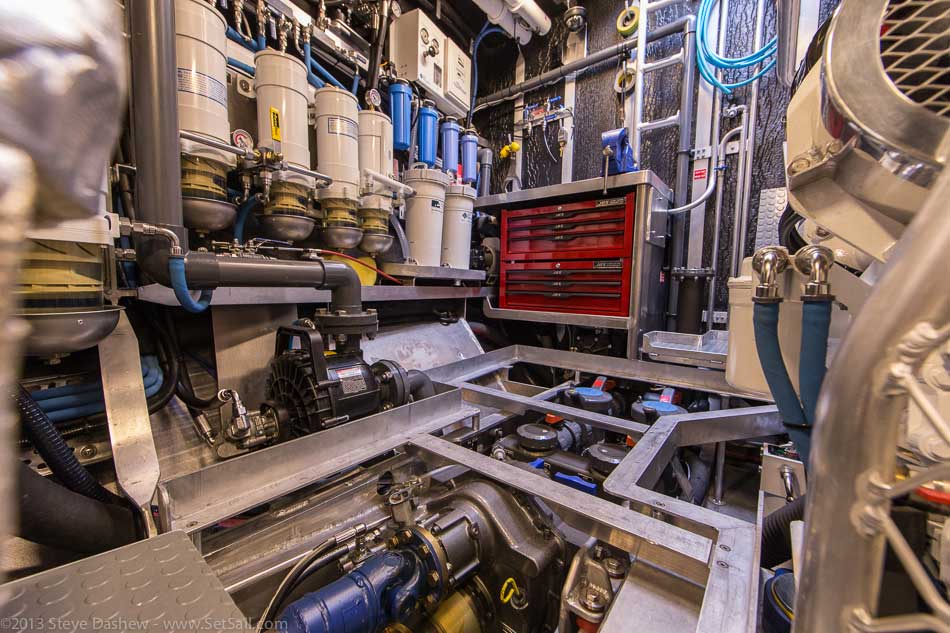
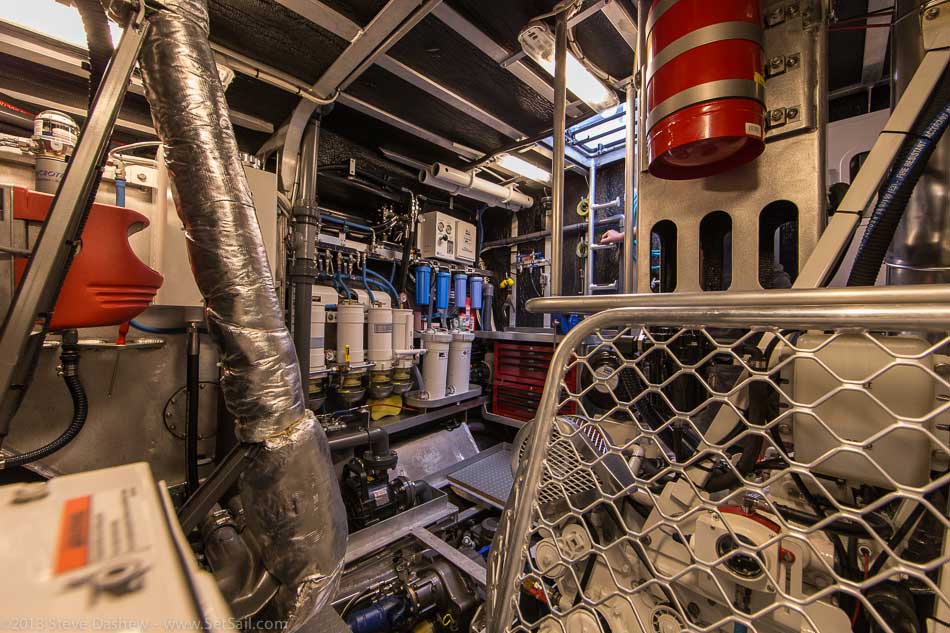
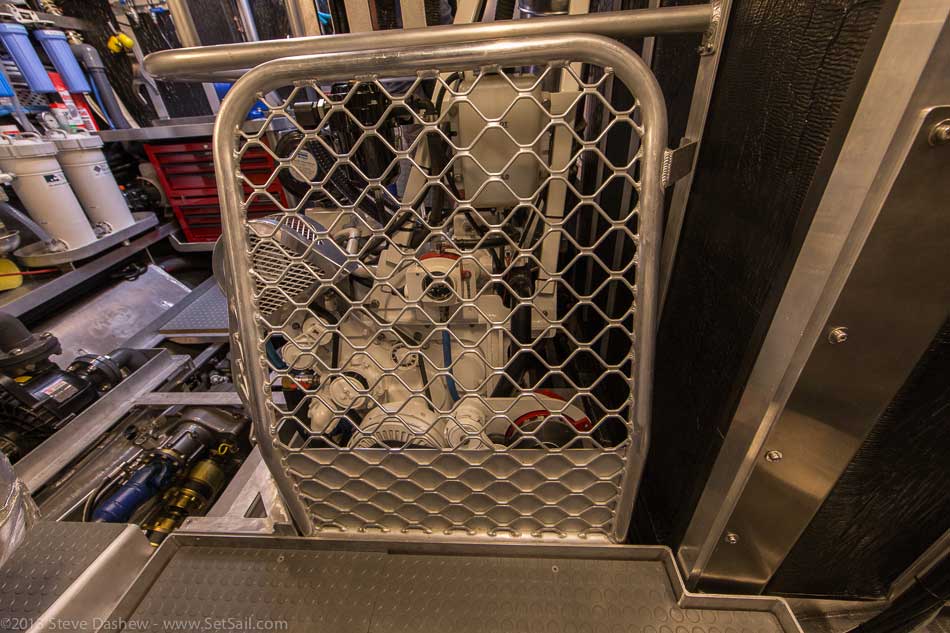
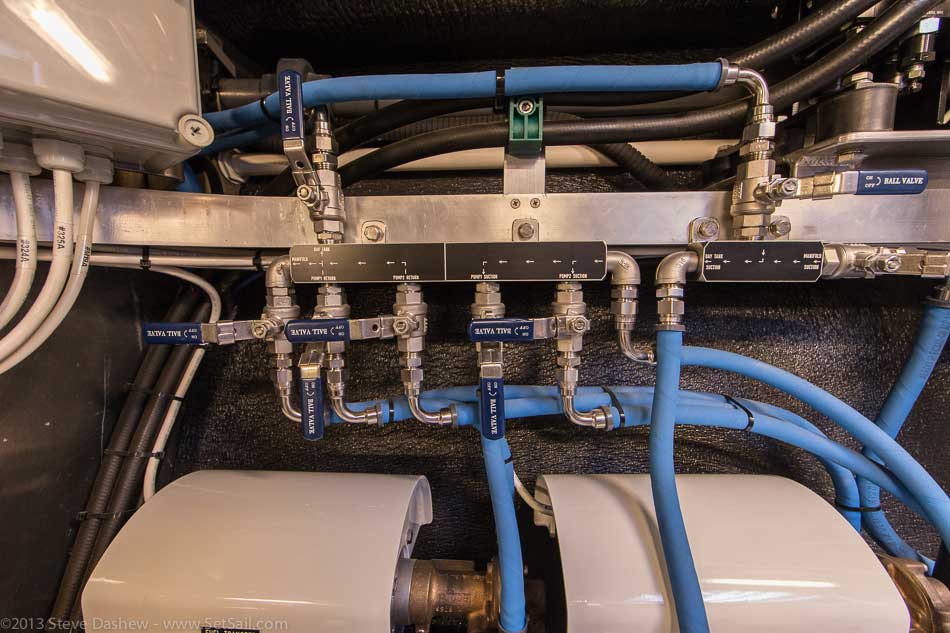
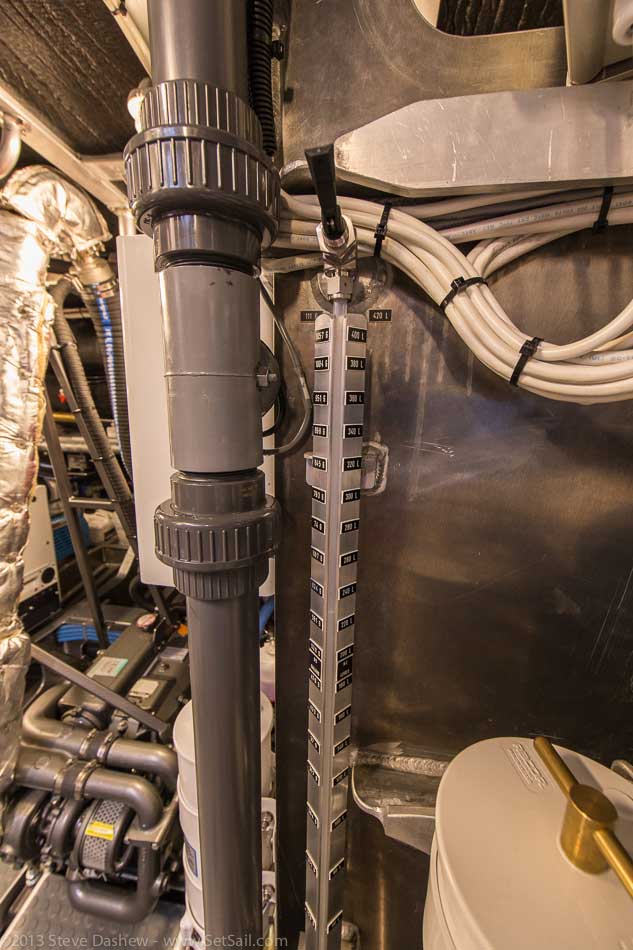
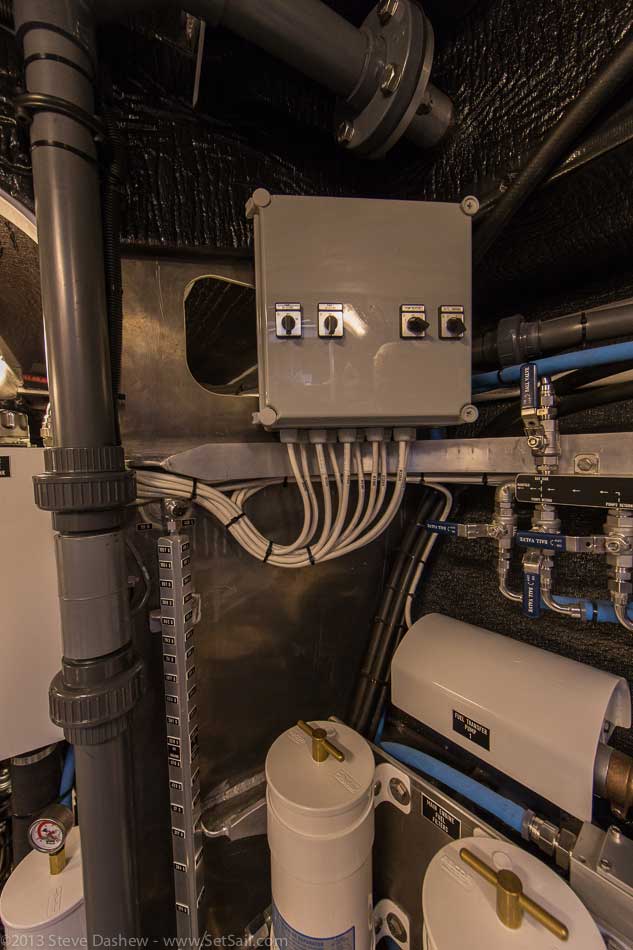
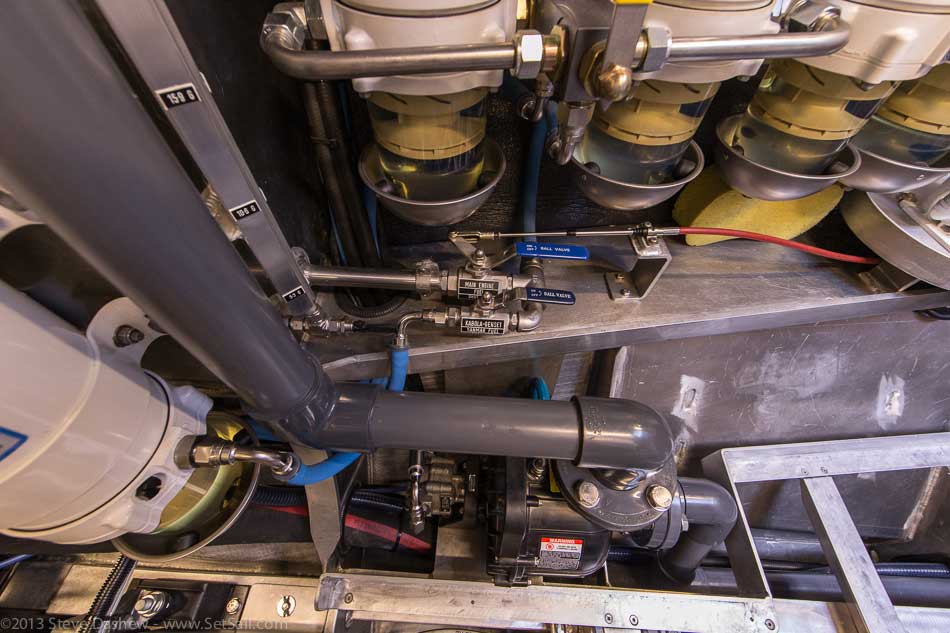
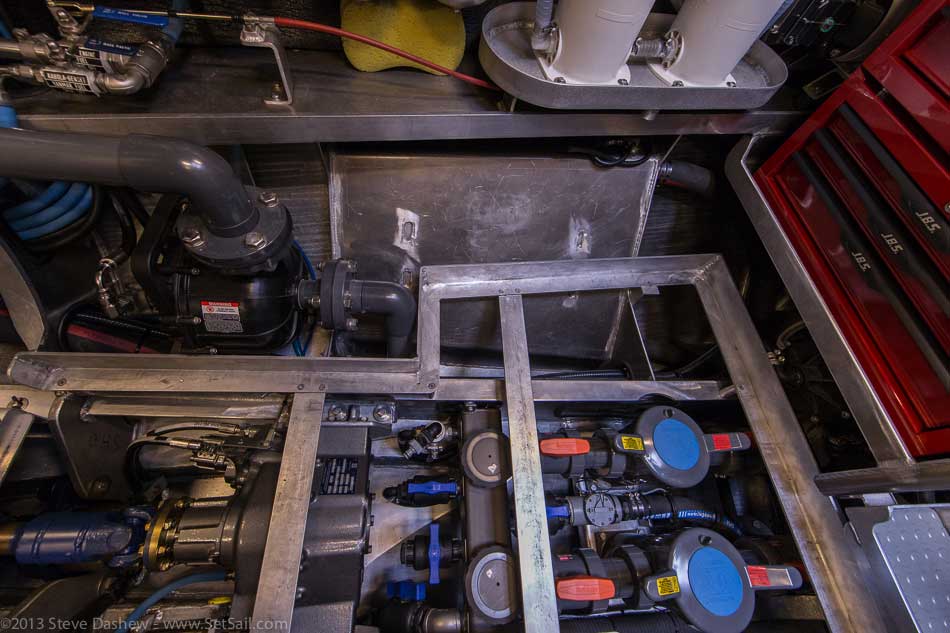
Posted by Steve Dashew (January 15, 2013)

January 15th, 2013 at 5:35 pm
Sirs,
As an engineer I find these posts to be very interesting and the workmanship is truly remarkable.
Regards
Alf
January 15th, 2013 at 7:32 pm
Amazing… There are allot of long hours involved in there! What is the coating on the walls? Is it a spray on ceramic insulation like Lizard Skin… http://www.lizardskin.com/
January 16th, 2013 at 2:50 am
The engine room surfaces and indeed the rest of the topsides and deck are coated in an Armaflex product.
January 15th, 2013 at 9:30 pm
Workmanship is great I should say also as an engineer. Better than many airplane makes, and from a certification standpoint, this is serious above and beyond the call of duty.
Obviously they love their work at Circa.
January 15th, 2013 at 10:17 pm
Functional Art
Brilliantly designed, meticulously planned, flawlessly executed. I have never seen a mechanical space better done anywhere.
–raj
January 16th, 2013 at 10:45 am
Curiously, what are the two padlocks for?
January 17th, 2013 at 10:38 am
Foredeck hatch locks.
January 16th, 2013 at 5:24 pm
WOW!
a hell of a lot better than the engine room I’m currently working with!
I’ll show my lot what a fuel filter system SHOULD look like!
and an excellent effort to photogragh it!
January 18th, 2013 at 8:37 am
Never noticed the ladder and hatch above the work bench before has it always been there? Nice to have natural light in the engine room.
January 18th, 2013 at 10:50 pm
Yes, ladder always there for egress from the engine room.
January 29th, 2013 at 10:47 pm
Noticed a shield over the drive shaft drip less stuffing box. I’m I correct?
January 30th, 2013 at 1:37 am
Yes. Like all PYI “dripless” shaft seals, they spray a little.
January 16th, 2014 at 8:38 pm
In a number of engine room photos I noticed a V-drive and it looks like connected to the main engine?
Remember they have a transmission loss of about 10-15%??
Am just surprised to see one in a boat with this length?
January 18th, 2014 at 1:03 am
The V-drive is a ZF 280-V, and we have been told the efficiency loss is about four percent, compared to 2.5% or thereabouts for a straight. Whatever the losses, the FPB 64s report a fuel burn of around 5.0 to 5.5 US gallons/hour at 9.75 to 10.0 knots. Regarding their use, we prefer straight drives, but sometimes there are length restrictions which make the use of a v-drive neccessary.
December 22nd, 2014 at 11:39 am
Hi there, I’m an engineer from Southampton, UK and love the engine room design! Where does the engine room get is ventilation from?
December 25th, 2014 at 6:50 pm
Hi Matt:
Both FPB 64 and 97 have large vents built as Dorade boxes on the aft deck. These project into the engine room to a point where they are above the static waterline with tanks half full if the boat is inverted. The purpose of this is to reduce the amount of water that might find its way into the engine space.
There are also exhaust fan(s) elsewhere as well.